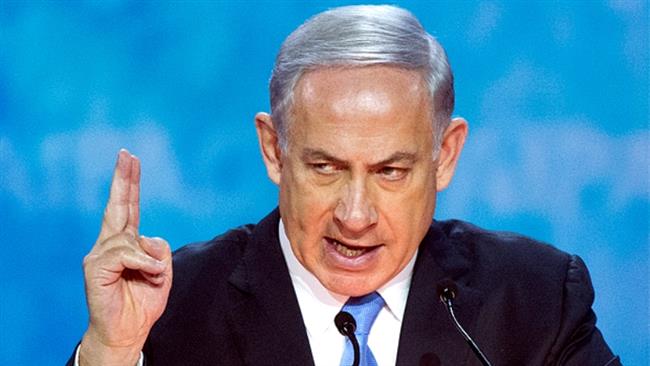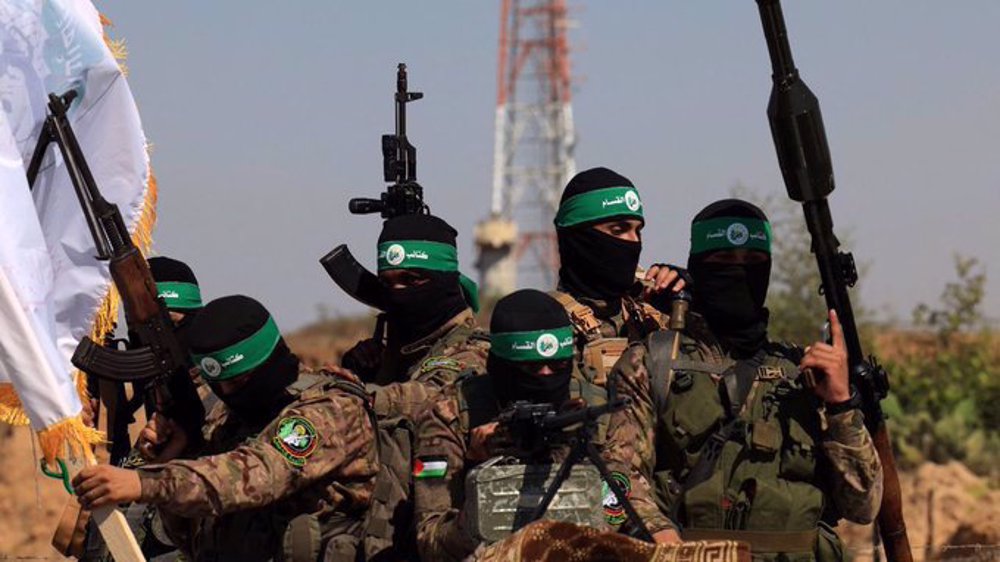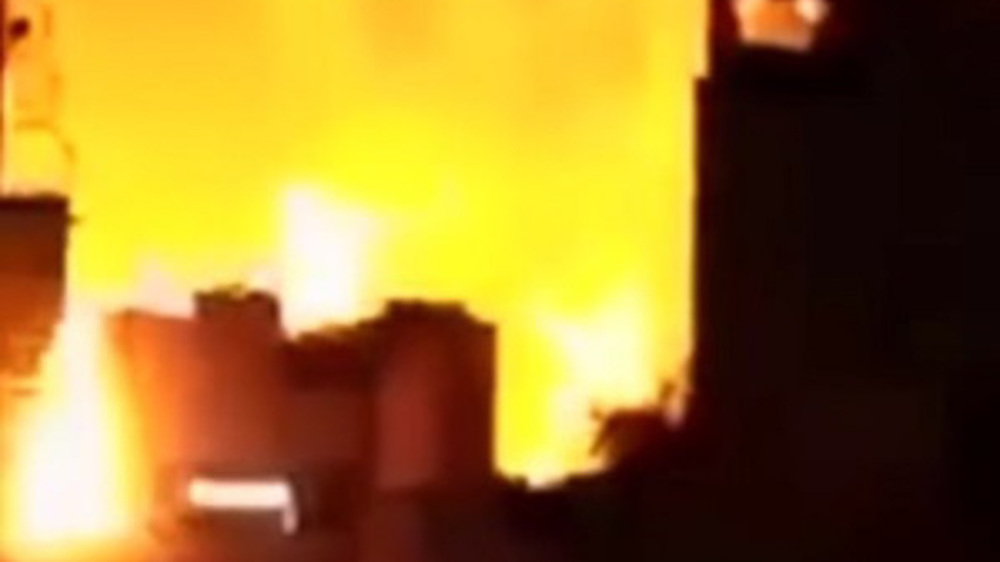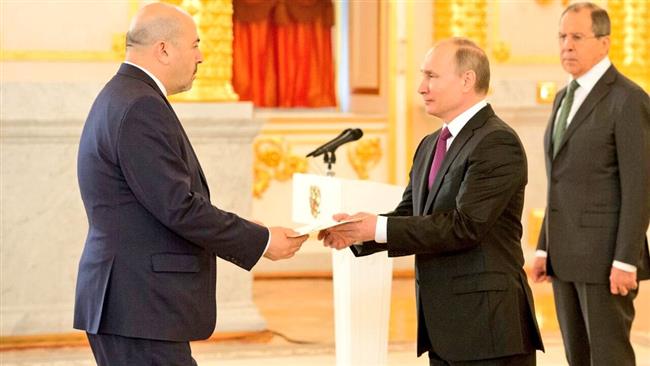Israel says will continue hitting Hezbollah in Syria
Israeli Prime Minister Benjamin Netanyahu has said in brazen remarks that his regime will continue to conduct military attacks against Hezbollah targets inside Syria, a day after Tel Aviv had to admit airstrikes inside Syrian territory.
Israeli warplanes intruded Syrian airspace on Friday, striking several targets near the ancient city of Palmyra in the central part of the Arab country. The Syrian government said it had fired anti-aircraft missiles at the intruding Israeli jets. It said one warplane had been shot down and another damaged.
Israeli Prime Minister Benjamin Netanyahu spoke about the incursion on Saturday, claiming that the strikes targeted weapons shipments to Hezbollah.
“When we identify attempts to transfer advanced weapons to Hezbollah and we have intelligence and it is operationally feasible, we act to prevent it,” he alleged. “That’s how it was yesterday and that’s how we shall continue to act.”
Hezbollah defended Lebanon against Israeli wars in 2000 and 2006. It has helped both prevent and contain the spillover into Lebanon of a terrorist campaign going on in Syria. The resistance movement has also been aiding the Syrian government in its own battle against extremist militants inside Syria.
The Syrian army has called the latest Israeli airstrikes “a desperate attempt” to help the Takfiri terrorist group of Daesh.

Israel, on the other hand, has been contributing to the terrorist campaign in Syria with the strikes against Hezbollah and the Syrian military and by offering medical treatment for the anti-Damascus militants in the Israeli-occupied Syrian territory of Golan Heights.
Read more:
- Syrian army: Israeli jet shot down, another hit
- Iran: Israel showed it masterminds Syria war
- 'Israel intervening in Syria through covert incursions'
Last September, an Israeli lawmaker said Tel Aviv was directly aiding the terrorist group formerly known as al-Nusra Front in the Golan Heights.
Read more:
In a message posted on his Facebook page and quoted by the daily Haaretz, Knesset member Akram Hasoon said Jabhat Fateh al-Sham, as the group is currently known, was bombing the Druze village of Khadr in non-occupied Golan with Israeli Minister for Military Affairs Avigdor Lieberman’s support and protection.
The Israeli regime every now and then hits targets inside Syrian territory in strikes that typically go unclaimed. While Netanyahu admitted for the first time in April 2016 that Israel had attacked dozens of convoys transporting weapons for Hezbollah in Syria, the Tel Aviv regime refuses to claim individual attacks.
It was forced to admit the Friday airstrikes, though, because its jets had been attacked by the Syrian military in that incursion.
Aiming for a state on the resistance front
Speaking to Press TV, Richard Becker, an expert with the ANSWER Coalition anti-war group, and London-based journalist and political commentator Richard Millet offered their takes on the Israeli attacks in Syria.
Millet claimed that the air raids had been “an act of self-defense” stopping Hezbollah from using those weapons against Israel. He also alleged that the strikes were “against... the takeover of Syria by Iran.”
Becker, however, said that Tel Aviv sought “to destroy Syria,” which has served as “a frontline state against the practices and policies of Israel, [i.e.] suppressing the Palestinian people and waging war on the Arab people and other people throughout the region.”
“Israel has long wanted to bring about regime change in Syria; and, if they can break up the Syrian state, that’s… seen by them [as being] in their interest,” he said.
VIDEO | Rome, Milan host new protests in solidarity with Palestinians
Dec. 21: ‘Axis of Resistance’ operations against Israeli occupation
Spain jurists demand ties with Israel ties be cut
VIDEO | Press TV's news headlines
VIDEO | Iran honors top Science Olympiad medalists
VIDEO | Austrians arrested at Gaza protest in Vienna
10 killed in bus crash in western Iran
VIDEO | One-man-band journalism with Civili












 This makes it easy to access the Press TV website
This makes it easy to access the Press TV website